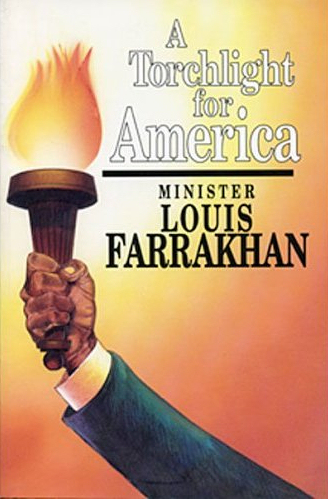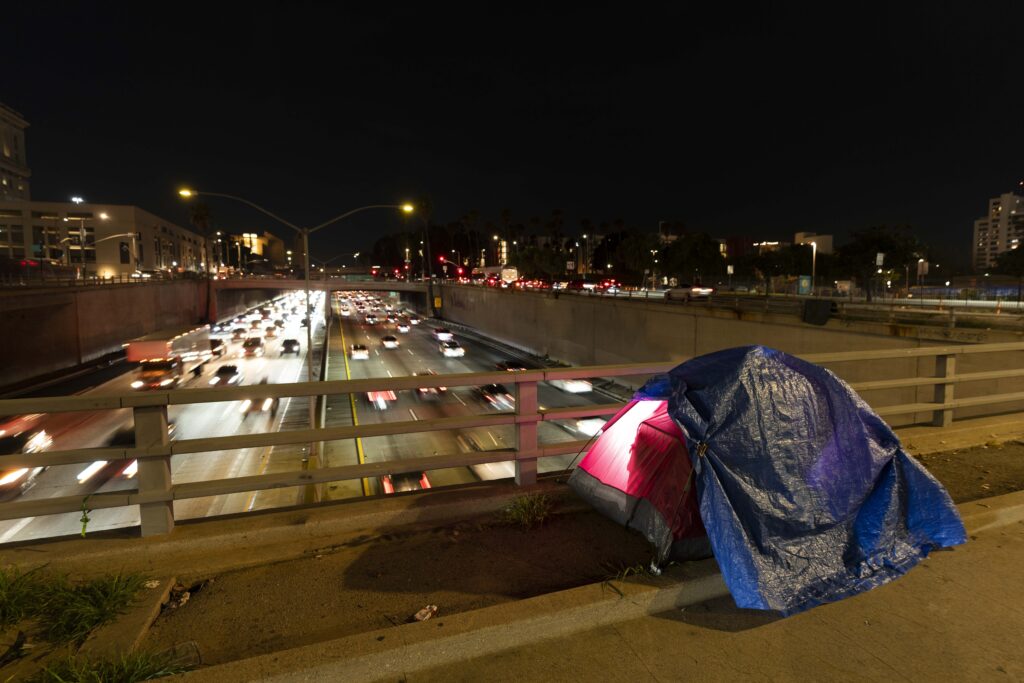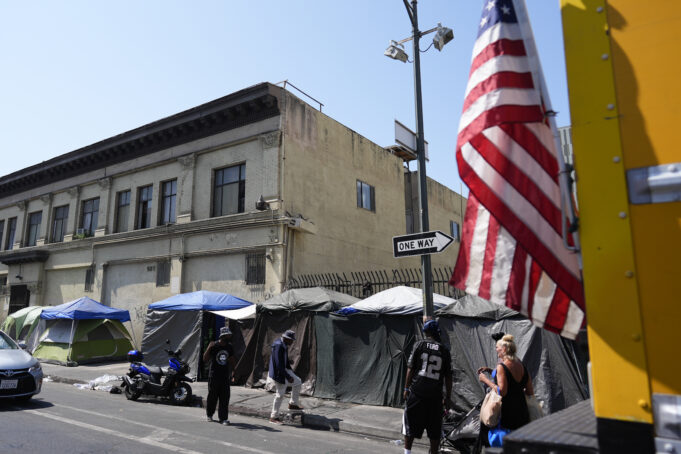The United States is grappling with an alarming surge in homelessness, particularly within Black communities.
While homelessness is a nationwide crisis, Black people in America are disproportionately affected, with Black individuals making up nearly 40 percent of the homeless population despite comprising only 13 percent of the U.S. population, according to the National Alliance to End Homelessness.
To make matters worse, the U.S. Supreme Court ruled in the case of Johnson v. Grants Pass on June 28 that people experiencing homelessness can be arrested and fined for sleeping outside when there are no safe alternatives.
The original lower court ruling filed in 2018 determined it is cruel and unusual punishment to arrest or ticket people for sleeping outside when they have no other safe place to go.
The case started in Grants Pass, Oregon, when the city began issuing tickets to people sleeping in public, even when there were not enough safe, accessible shelter beds, according to the National Homelessness Law Center.
“Grants Pass, like many cities in America, is thousands of housing units short of what is needed. That shortfall will not be solved by putting more people in jail or issuing more tickets.
The solution to homelessness is safe, decent, and affordable housing for everybody,” argues the National Homelessness Law Center’s team of human rights attorneys and advocates who work to solve homelessness by challenging homelessness criminalization and protecting the rights of homeless people across the U.S.
Why are so many people out of houses and homes in America, a country that is purportedly a bastion of justice, hope, freedom, opportunity and equality?

The Most Honorable Elijah Muhammad, the Eternal Leader of the Nation of Islam, taught on the restrictions and tactics enacted by the U.S. government and powerful Whites that make it difficult for Black people to benefit from what the country offers.
In his prophetic book, “Message To The Blackman in America,” in the chapter “What the So-Called Negro Must Do For Himself,” on page 37, the Honorable Elijah Muhammad writes:
“Robert H. Kinzer and Edward Sagarin, in their book, ‘The Negro in American Business’ (page 81), states that the history of America would be different today if the slaves freed from bondage had been given, in addition to the three amendments to the Constitution, the famous ‘forty acres and a mule.’”
The Honorable Elijah Muhammad continues, “The slaves instead started not only without land and the money to purchase it but with few avenues open to earn and save money. Ownership of producing land is a prime and necessary part of freedom.
A people cannot exist freely without land, and the so-called Negro in America is evidence of that fact. The slave-master passed laws limiting the areas in which such purchases or even rentals could be made. Are you not left restricted to the poorer sections the slave-master is abandoning throughout America?”
The Honorable Elijah Muhammad also introduced the Muslim Program, found on the inside back page of The Final Call newspaper.
The Honorable Minister Louis Farrakhan has consistently advocated and promoted The Muslim Program throughout his decades of ministry, explained Nation of Islam Southwest Regional Student Minister Dr. Abdul Haleem Muhammad. He has a doctorate in Urban Planning and Environmental Planning.
As it relates to welfare and housing, What the Muslims Want (The Muslim Program) in Point No. 4 talks about the 400 years of free or nearly free labor that Black people have given to America which has helped it become a rich and powerful country.
“We do not believe that after 400 years of free or nearly free labor, sweat, and blood, which has helped America become rich and powerful, so many thousands of Black people should have to subsist on relief or charity or live in poor houses,’” Student Minister Muhammad said.
“In the universal expression and application of this principle found in the Muslim Program, the Minister told the audience at ‘The Convention of the Oppressed,’ held at the TWA Dome in St. Louis, Missouri, (September 28, 1996) the following:
“Every natural need of a human being is a human right. Therefore, any person or any institution that deprives us of our basic natural needs is an enemy of human rights,” said Student Min. Haleem Muhammad quoting from what his teacher, Minister Farrakhan stated.
He further explained that Minister Farrakhan asked and answered the question: “What are the basic human needs? Food, clothing, and shelter.” “Housing and shelter is not a privilege, it is a human right and there are too many Americans living under bridges, in cardboard boxes who have fought to keep America safe and economically productive. Homelessness is a denial of human rights,” stated Student Minister Haleem Muhammad, from Minister Farrakhan.
During that message, Minister Farrakhan spoke on the need for human rights, Student Min. Haleem continued. Minister Farrakhan stated, “For America to talk about other nations denying people human rights while there are so many in America that are loveless, lifeless, homeless, uneducated, not free, justified or equal, having not family, or proper institutions to grant them their basic human needs and rights is gross hypocrisy. This is why there is so much dissatisfaction in America and throughout the earth.
The human being is groaning under the burden of governments, systems, and institutions that have failed to meet their human needs,” said Student Min. Haleem Muhammad, again quoting from his teacher.
Advocates cite the rise of severe housing cost burden as a key factor contributing to the plight of homelessness. The number of renter households paying more than 50 percent of their income on rent increased dramatically, rising over 12.6 percent between 2015 to 2022, according to the State of Homelessness 2024 report.
A household is said to be cost-burdened when it pays more than 30 percent of its income toward housing expenses, according to the U.S. Census Bureau.

“The Million Family March National Agenda, Public Policy Issues, Analyses, and Programmatic Plan of Action 2000-2008” noted on page 103 that housing is afundamental human right and that homelessness in the wealthiest society in the world is an affront to humanity.
“Family life is to a large measure conditional of the quality of the family’s housing. Public policymakers too often provide legislation remedies on housing that are out of reach for families who have historically been denied equal access to housing opportunities.
The issue of homelessness is a growing social and spiritual crisis in America. In too many cities across the nation, entire families live homeless on the streets,” cited the National Agenda.
Centuries of systemic, historical racism are also at the root of Black homelessness in America. From slavery to Jim Crow, and from redlining to mass incarceration, Black people in America have faced enduring obstacles to economic mobility and homeownership.
For instance, the Federal Housing Administration’s redlining practices in the 1930s and 1940s, which denied Black families access to mortgages and homeownership, have had lasting effects. The result was the creation of segregated neighborhoods, where Black families were confined to areas with fewer resources, higher poverty rates, and limited access to quality education.
Historical injustices have compounded over generations, leading to lower rates of homeownership and wealth accumulation in Black communities. Today, the wealth gap between Black and White families remains stark, with the median wealth of Black households being just a fraction of that of White households.
According to “2024’s States with the Biggest & Smallest Wealth Gaps by Race/Ethnicity,” a recent report from the personal finance website WalletHub, the median household wealth for Black people in America is just $14,100, compared to $187,300 for non-Hispanic White households. Hispanic households also lag behind, with a median household wealth of $31,700.
This wealth disparity leaves Black families more vulnerable to economic shocks, such as job loss, health crises, or sudden rent increases, pushing them closer to homelessness, researchers point out.
In addition, economic inequality has made it hard for Black people to stay afloat and is a significant driver of homelessness in Black America.
According to analysis in the National Urban League’s State of Black America 2024 Report, economic inequality is a persistent problem. Black men earn $91 less per week and Black women $72 less per week in 2024 than in 2000.
Black households had 64 cents for every White household dollar. Black homeownership decreased from 64 percent in 2000 to 61 percent in 2024, and Black people are still disproportionately unemployed compared to Whites, it found.
The COVID-19 pandemic exacerbated these vulnerabilities. According to Bloomberg, 41 percent of Black-owned businesses went out of business during the economic shutdown.
“The collapse of 440,000 Black-owned businesses is a devastating blow to the Black community and a substantial loss for the entire economy. The loss of 440,000 Black-owned businesses coupled with 16.8 percent unemployment of Black Americans is a state of emergency.
The President of the United States has blatantly made clear his stance on Black lives,” stated Ron Busby, president of the U.S. Black Chambers in a statement released on June 12.
Black workers were more likely to be employed in essential, yet low-paying, jobs, and were more likely to face layoffs or reduced hours during the pandemic. The economic fallout from the pandemic led to a wave of evictions, with Black renters being disproportionately affected. The end of eviction moratoriums in many states has only worsened the crisis, leaving many Black families without a safety net.
Despite the passage of the Fair Housing Act in 1968, housing discrimination remains a pervasive issue for Black Americans. Black renters and homebuyers are more likely to face discrimination in the housing market, including being shown fewer housing options, being quoted higher rents, and being denied loans or mortgages. This discrimination limits housing choices and increases the likelihood of living in substandard or unaffordable housing.
In his book “A Torchlight for America,’ the Honorable Minister Louis Farrakhan wrote in part, “In truth, the poor are voiceless in society as it is presently structured. “This begs the question, how can America send $20 billion to Israel, when those resources are so desperately needed here at home for the unhoused?
And who will speak for them,” stated Student Minister Haleem Muhammad, referring to the Biden administration’s approval to send the additional funding for weapons, which would include up to 50 F-15 fighter jets and advanced air-to-air missiles. “The Minister answers these questions in ‘Torchlight,’” Student Min. Haleem Muhammad continued.
“The man, Jesus, was sent because no one was speaking concerning the real issues of the poor. Jesus became the advocate of the poor and got in trouble with the rich. The poor today need a Jesus. The poor today need an advocate who will stand for them and speak out to the rich on their behalf,” Minister Farrakhan wrote.













